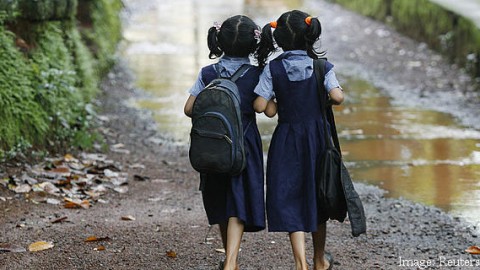Students today, are aware, more focused and need a major shift from ‘the chalk & talk’ teachers, writes Prof. Trupti Vikas Panicker
Education has evolved into various manifestations – be it classrooms, open space, be it home-tutoring or in the form of correspondence courses. This evolution is not recent. Education takes different forms and shapes according to the perceptual needs of the students.
Education can be elite to, or it may be basic rural in format. It can be open-minded and free in structure – as in Shanti Niketan or as the IIT Entrance Topper who was home-tutored by his parents.
Every facet of education can be accessible or inaccessible. Inaccessibility is rendered to a larger section of society due to high levels of cost and fees. Adequate Government grants make education accessible which was the norm upto the 90s. The teaching – learning process, then concentrated more on developing the student not just academically, but socially and culturally as well.
Gradually, with the advent of technology, the shift was more towards academic excellence which would not be catered by the then existing Government aided Institutions and this gave rise to the private schools which was in the reach of the elite alone. With the rising demand and competition in various fields, the need to move beyond the four walls of the Institutes became the need of the hour.
The students today, irrespective of the strata of the society they belong to, are aware, more focussed and need a major shift from ‘the chalk & talk’ teachers. The mental and motor skills have been taken over by the virtual world. One cannot deny this as it is just keeping pace with the global needs of the present day.
A system that is more current and adaptable to the latest technological advances across the world and which makes the student’s shift to mainstream comfortable as he graduates, does the magic here. This is possible by continual training of the academic faculty to keep abreast with the changing scenario today. Virtual classrooms that expose certain concepts, which can be taken by the student outside the classrooms practically and independently without a structure will improve the creativity of the student wherever he is.
To evolve from the Gurukul to Nalanda to the modern-day educomps, think out of the box and forge ahead to progress interconnected with education always.
Mrs. Trupti Vikar Panicker is one of the senior faculty members at Ramnivas Ruia College, Mumbai and is a Resource Person in the subject.
_______________________________________
Disclaimer: The opinions expressed within this article are the personal opinions of the author. Spectralhues is not responsible for the accuracy, completeness, suitability, or validity of any information on this article. The information, facts or opinions expressed in the article do not reflect the views of Spectralhues and Spectralhues does not take any responsibility or liability for the same.
Tags: Classrooms colleges Education Gurukul india Indian Nalanda schools Sunday Special Teachers








